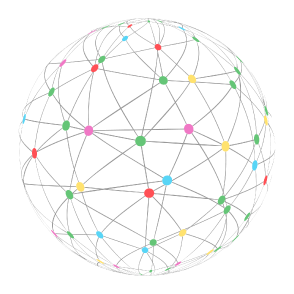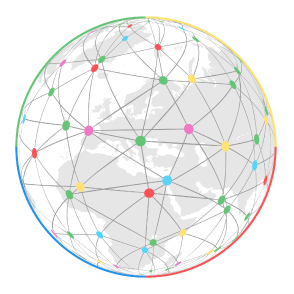The Challenge
Although initiatives that seek to involve and engage patients have increasingly become a priority across healthcare, there are no globally accepted guiding principles around patient involvement and engagement that identify and integrate good practices. As a consequence, current patient engagement is sporadic, fragmented and unstructured with no clearly defined framework or agreed process. Without such a framework, the ability of patient engagement activities to meet agreed and desired objectives will be compromised.
The Goal
PFMD’s overarching goal is to work with patients and other stakeholders to co-create and drive implementation of an integrated, efficient, measurable and robust meta-framework to deliver a consistent approach to patient involvement.
About PFMD
Why develop an online collection tool
This online collection tool has been developed to gather data where there may be no documentation publicly available. A key feature of the tool is that information about each initiative will be entered by those directly involved – rather than relying on desk research alone – providing a greater opportunity to understand patient engagement efforts, including their successes and limitations. The tool captures quality data using pre-defined standards to allow for consistency in depiction and to ensure that the information collected across various initiatives is credible, consistent, and up to date.
The online collection tool in the framework development context
Medicines are developed to improve the lives of patients. Serving patients in the best way possible requires a deep understanding of their medical conditions, needs and priorities. This can be gained only through direct, sustained and constructive interactions with ‘patients’ - a definition that includes those with the medical condition and their family or carers. Health stakeholders agree that broadening patient engagement is key to improving drug development and providing solutions that achieve both clinical and patient-desired outcomes. As a result, there is an encouraging and increasing number of patient engagement (PE) initiatives that aim to integrate the patient voice in medicines development specifically, and in the healthcare arena generally.
However, current PE is sporadic, fragmented and unstructured with no clearly defined framework or agreed process. Without such a framework, the ability of PE activities to meet agreed and desired objectives will be compromised. What is needed is a consistent approach to PE, through development and implementation of an efficient, measurable and reliable meta-framework that involves patients as partners and is accepted and used by relevant stakeholders.
Despite the substantial increase in PE initiatives, there is currently no efficient mechanism for accessing information on what PE activities are ongoing or planned and to identify challenges encountered and lessons learned. Therefore, an essential first step in development of a meta-framework is to identify and ‘map’ existing initiatives and frameworks, allowing a 360-stakeholder view of the PE landscape. This will provide a platform for identifying gaps and synergies from different stakeholder perspectives and allow those committed to effective PE to learn from good practice by actively sharing experience and to connect. It also means not always having to start from scratch each time but instead there is a growth in expertise and knowledge that can be incrementally build upon.
Methodology
Preliminary Mapping
PFMD has deployed various methods to conduct a landscape assessment and obtain needed information on current PE initiatives. These are: a preliminary mapping of known initiatives; an extensive literature search; and interviews with stakeholders across healthcare who have partnered with patients and/or provided guidance to partnering with patients. The methodology used in preliminary mapping of initiatives involved a search of initiatives underway in both formal and non-formal publications, journal articles, conference hearings, and word of mouth. The preliminary mapping identified a need to validate data with various organizations given the limited publications on this topic, the inconsistencies that may be presented in anecdotal presentations, and the wide spectrum of how organizations categorize “partnership with patients”.
Online Collection Tool
Much information on PE is not routinely published but instead is shared in meetings and discussions, mandating a need for a pro-active collection process. The online collection tool has been developed to gather data where there may be no documentation publicly available. The online collection tool captures quality data using pre-defined standards to allow for consistency in depiction and will also help to ensure that the information collected across various initiatives is credible, consistent, and up to date.
Collecting and understanding initiatives by talking directly with those involved and requesting their input (rather than relying on desk research alone) provides a greater opportunity to understand efforts underway, including their successes and limitations. In addition, it allows identification of potential tools to measure the impact of patient engagement. Good practices of the individual efforts underway will ultimately be integrated into our global meta-framework, if applicable. Finally, this allows a connection or contact with all initiatives, allowing further collaboration from the meta-framework point of view but also the creation of a global network of PE for further practical PE between stakeholders.

Mapping
Conduct a landscape assessment of initiatives that involve the patient.

Connections
Develop a platform allowing for cross- pollination.

Synergizing Framework
Synergize and globalize good practices into an integrated patient involvement framework.